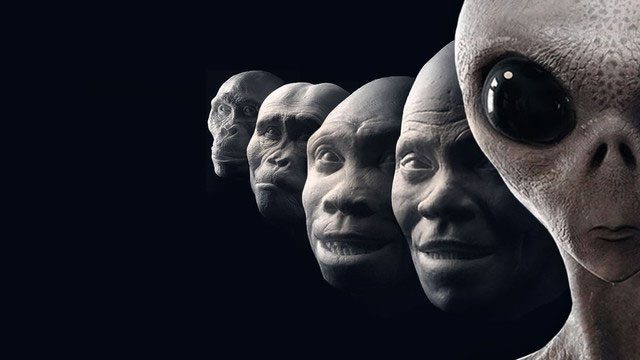For a long time, the question of the existence of extraterrestrial life has captivated human imagination. But what if aliens are not strange beings from distant planets, but rather humans from the future?
Aliens – Time Travelers?
In 1947, a mysterious object crash-landed in the desert near Roswell, New Mexico, sparking a global sensation. Initially, the U.S. government declared the object to be merely a military weather balloon. However, decades later, George W. Hoover, a former U.S. Navy commander, revealed astonishing information: the incident may be linked to time travelers from the future.
According to Hoover, these future humans have developed advanced technology far beyond our current capabilities. Some theories even suggest they travel back in time to study their biological ancestors or to assist humanity in achieving significant technological advancements. This could explain why, in a relatively short period, humans on Earth have made scientific leaps that previously took thousands of years to develop.

The hypothesis that aliens are actually future humans has drawn the attention of many scientists and science fiction enthusiasts.
Characteristics of Future Humans
If this hypothesis is correct, future aliens may not resemble us today. Scientists predict that as humans continue to evolve, our heads and skulls will grow larger to accommodate a more developed brain. Our eyes might also become larger to improve visibility in low-light environments, especially if we live on distant planets where sunlight is weaker.
Furthermore, future humans may discover ways to slow down the aging process, allowing them to live for hundreds or even thousands of years. This means that interplanetary or intergalactic journeys, which could take decades or centuries, could be completed within a single lifetime. However, this raises the question: could living too long lead to overpopulation and resource strain?

This idea suggests that the beings we refer to as aliens may be descendants of humans who have evolved and developed time travel technology to visit the past.
Biological Integration with Technology
Another significant characteristic of future humans could be a close integration of biology and technology. They might possess numerous technological implants to optimize their lives. Imagine today’s smartphones integrated into a chip within the brain, allowing you to control everything just by thinking.
Such implants might also explain why some witnesses in UFO encounters report that aliens communicate in their native languages. Perhaps future humans have automatic language translation devices integrated into their brains. Alternatively, they may have evolved to use a single global language, such as Esperanto (an international auxiliary language created by Polish ophthalmologist LL Zamenhof in 1887, who published a book detailing the language, “Unua Libro,” under the pen name “Doctor Esperanto”).

Future humans will have larger heads and skulls to accommodate a developed brain. They may have discovered how to slow the aging process, allowing them to live for hundreds or even thousands of years.
The Purpose of Time Travel
If future humans are indeed traveling back in time to study the past, what is their purpose? One hypothesis suggests they are seeking to gain a deeper understanding of their own evolutionary history or even trying to prevent unforeseen disasters.
Interestingly, this idea is not entirely foreign in theoretical physics. Many scientists have explored the possibility of time travel through wormholes or spacetime curves. However, to date, these concepts remain theoretical and lack any experimental evidence.

Some scientists even suggest that these aliens return to the past to study their ancestors or to help humanity achieve significant technological advancements.
What Would We Ask If We Met Them?
If one day future humans appeared before us, what would be the first question you want to ask? Would you want to know how they transcended the limits of time and space? Or would you want to understand how they built a more efficient and sustainable society?
Meeting future humans could provide many answers but also raise numerous questions. Would we be able to comprehend the advanced technologies they bring? Would they help us or control us?

The hypothesis that “aliens are future humans” remains an unresolved mystery.
An Intriguing Yet Challenging Prospect
While the hypothesis that “aliens are future humans” remains an unanswered mystery, it opens up intriguing yet challenging prospects. If one day this were to become a reality, we would not only face questions about the origin and future of humanity but also prepare for a comprehensive shift in how we perceive ourselves and our place in the universe.
No matter the outcome, this hypothesis serves as a reminder that the evolution of humanity, whether on Earth or beyond, is a journey of continuous exploration and creativity. And who knows, perhaps we today are laying the very foundations for the great journeys of the future.


















































